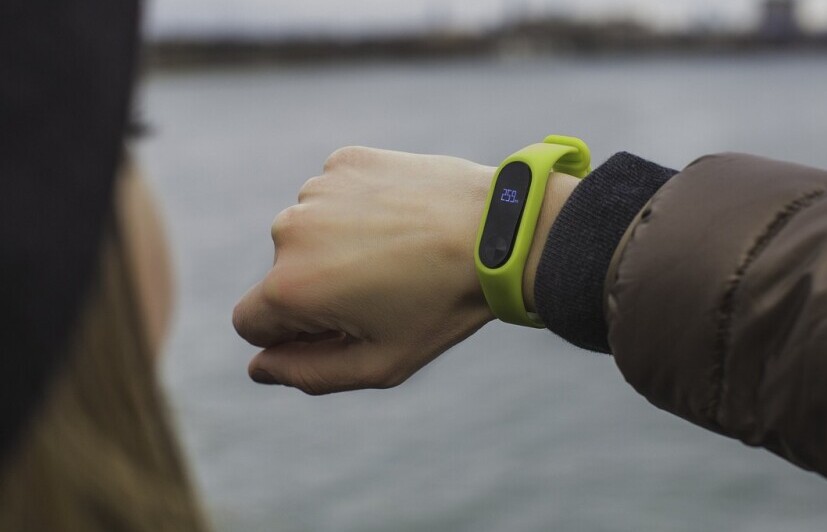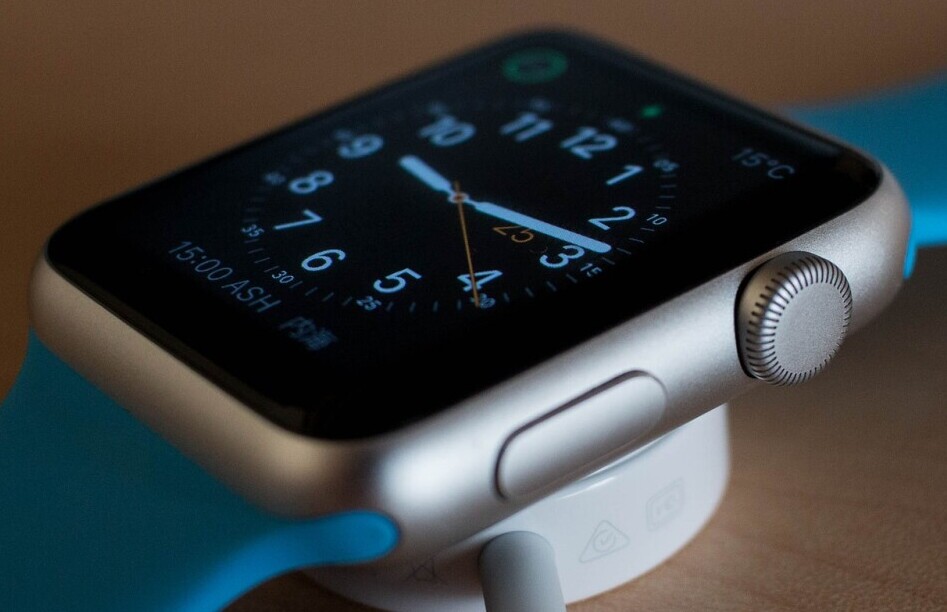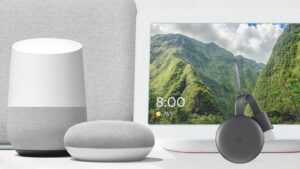
In this article, we compare the best wearable fitness trackers so you can make an informed choice before buying one. Wearable fitness trackers have become a staple in the world of health and wellness. These handy gadgets are designed to be worn on your body as you go about your day, tracking various fitness-related metrics such as steps taken, heart rate, and even sleep patterns. By collecting and analyzing this data, fitness trackers can provide insights into your overall health and help you make more informed lifestyle choices.
The evolution of wearable fitness technology is pretty fascinating. What started as simple pedometers have now turned into sophisticated devices packed with sensors and features. Early versions were primarily for tracking steps. Today’s models can monitor your heart rate, track your sleep, provide GPS tracking for your runs, and even remind you to stand up if you’ve been sitting too long.
Fitness trackers have become essential tools for anyone leading a modern, active lifestyle. Whether you’re a professional athlete or someone just trying to get in better shape, these devices offer a convenient way to keep tabs on your health metrics. They can motivate you to reach your fitness goals, set new ones, and even compete with friends or a community for an extra boost.
The beauty of these tools is their accessibility. They bridge the gap between you and medical-grade data without the complexity or cost. Most fitness trackers sync seamlessly with mobile apps, providing you with detailed reports and trends over time, making it easier to understand your progress.
Overall, wearing a fitness tracker is like having a personal coach right on your wrist. It keeps you accountable, guides your exercise routines, and helps you make healthier choices daily. They are no longer just for tech enthusiasts or fitness buffs – anyone can benefit from the insights they provide.
Key Features to Look for in Fitness Trackers
When choosing a fitness tracker, certain features stand out as crucial for getting the most out of your device. Here are some key features to keep an eye on:
Heart rate monitoring is essential for tracking your cardiovascular health. Many trackers now offer continuous heart rate monitoring, which helps you understand your heart’s performance during various activities and even at rest. This data can guide your workouts and help you maintain a steady exercise intensity.
Sleep tracking is another valuable feature. Quality sleep is critical for overall health, and knowing your sleep patterns can help you make necessary adjustments. Advanced trackers can break down your sleep into stages – light, deep, and REM – and provide insights into how to improve your sleep hygiene.
GPS and location tracking capabilities are useful for runners, cyclists, and hikers. This feature lets you map out your routes, track your distance, and even monitor your pace and elevations. It’s a game-changer for anyone looking to track their outdoor activities with precision.
Water resistance is a feature you shouldn’t overlook. Whether you’re swimming or just want a device that can withstand showers and sweat, having a water-resistant tracker ensures durability and versatility.
Battery life can significantly impact how you use your fitness tracker. Long battery life means less frequent charging, which is especially convenient if you’re using multiple tracking features. Some models offer battery lives that span from a few days to several weeks, depending on usage. Evaluating the battery life in relation to your personal needs is key to a satisfying experience.
In addition to these primary features, some fitness trackers offer extras like stress monitoring, guided breathing exercises, and smart notifications. Balancing these features with your specific needs can help you pick the right tracker tailored to your lifestyle.
Top Wearable Fitness Trackers in 2023

Navigating the array of fitness trackers available in 2023 can be overwhelming, but focusing on the top models can help streamline your search. Here’s a roundup of the best wearable fitness trackers this year and what makes them stand out.
Apple Watch Series 8 is at the forefront with its integration of comprehensive health metrics and everyday utility. Besides excellent heart rate and sleep tracking, it offers ECG, blood oxygen level monitoring, and a polished user experience. Plus, its seamless compatibility with iOS devices is a notable perk for Apple users.
Fitbit Charge 5 is another strong contender, offering a balance of essential features and affordability. It tracks heart rate, stress levels, and sleep stages while providing built-in GPS. The sleek design and intuitive interface make it a popular choice for users at different fitness levels.
Garmin Forerunner 945 stands out for serious athletes, offering advanced training metrics and robust GPS tracking. It’s perfect for runners, cyclists, and triathletes looking for detailed performance insights. Its long battery life and durability also make it ideal for extended outdoor activity.
Samsung Galaxy Watch 5 is a versatile option blending fitness tracking with smartwatch functionalities. It tracks heart rate, sleep, and workouts while offering smart features like calls, texts, and notifications. The AMOLED display adds a vibrant touch, and it integrates well with Android devices.
Whoop Strap 4.0 offers a unique perspective by focusing on recovery and strain rather than just exercise metrics. It continuously monitors heart rate, sleep, and daily strain, providing personalized recommendations to balance exertion and rest for optimal performance. It’s a great choice for those focused on holistic health.
Specialized features like those found in the Oura Ring Gen 3 can also appeal to users interested in a more discreet option. This ring tracks sleep, readiness, and activity levels without the bulk of traditional wrist-worn devices. Its sleek design and in-depth insights make it perfect for those who prefer minimalist wearables.
Each of these models brings something unique to the table, allowing you to choose one that aligns best with your particular fitness needs and lifestyle. Prioritize the features that matter most to you, whether it’s comprehensive health metrics, detailed performance data, or seamless integration with your existing devices.
User Experience and Design
Comfort is a big factor when wearing a fitness tracker all day. The best models blend functionality with a lightweight design that doesn’t become a nuisance. Materials used for the band should be breathable and skin-friendly, as irritation can derail your experience.
Ease of use is critical too. A well-designed interface that is intuitive allows users to access information quickly. Whether it’s reviewing heart rate data, checking step counts, or starting a workout, seamless navigation can greatly enhance user satisfaction.
Customization options help personalize the experience. Swappable bands, customizable watch faces, and adjustable settings for alerts and notifications mean you can tailor the tracker to match your style and preferences. This level of personalization makes the device feel truly yours.
The display quality is another aspect that shouldn’t be overlooked. Clear, bright screens that are easy to read in various lighting conditions make checking your stats a breeze. It’s also beneficial if the display is touch-sensitive, adding another layer of ease in interaction.
Durability plays a vital role in the overall user experience. Robust build quality ensures your tracker can withstand daily wear and tear, including exposure to water, sweat, and occasional knocks. It’s reassuring to know your device is built to last.
Battery life significantly impacts convenience. Devices with longer battery life reduce the frequency of charges, integrating more smoothly into your routine. Some models offer solar charging or power-saving modes, adding extra flexibility.
Good design also means the fitness tracker integrates well with its app. Whether you’re using an iOS or Android device, the app should sync seamlessly, providing comprehensive insights and easy access to your data. A user-friendly app enhances the tracker’s value and encourages continued use.
Health and Fitness Insights

Tracking fitness metrics like steps, calories, and workouts plays a pivotal role in understanding your physical activity levels. Most fitness trackers offer detailed reports on daily and weekly activity, helping you monitor progress and set realistic goals.
Heart rate monitoring provides real-time data on your cardiovascular health. This can guide you during workouts, ensuring you maintain an optimal intensity for burning calories and improving heart health. Some trackers even offer heart-rate variability tracking, which can give insights into stress levels and overall wellness.
Integration with health apps can streamline your health management. Most trackers sync with popular apps like Apple Health, Google Fit, and MyFitnessPal. This integration compiles data from various sources, giving you a comprehensive overview of your health metrics in one place.
Sleep tracking is invaluable for understanding and improving your sleep quality. Trackers provide data on different sleep stages, helping you identify patterns that may affect rest. Improving sleep quality can lead to better energy levels and overall health.
Advanced sensors in modern trackers offer features like VO2 max, which measures your body’s maximum oxygen consumption during exercise. This metric is a strong indicator of aerobic fitness and can be particularly useful for athletes aiming to enhance performance.
Data accuracy and reliability are crucial for gaining meaningful health insights. While no device is 100% accurate, the best trackers strive for precision. Reading user reviews and expert analyses can provide a clearer picture of a tracker’s accuracy and help you choose one that meets your needs.
Setting personalized goals based on your fitness level ensures that your tracker serves as an effective health tool. Customizable targets keep you motivated, whether you’re aiming to increase your daily steps, improve sleep quality, or boost your workout intensity.
Price vs. Performance
Finding a fitness tracker that offers the best balance between cost and features is key. With so many options on the market, understanding what you get for your money is crucial.
Budget-friendly options, like the Xiaomi Mi Band series, offer core features such as step counting, heart rate monitoring, and sleep tracking at a fraction of the price of premium models. These devices are perfect for those just beginning their fitness journey or anyone looking to keep things simple.
Mid-range trackers, such as the Fitbit Charge 5 or Garmin Vivosmart 4, often come with additional features like built-in GPS, advanced sleep tracking, and stress monitoring. These devices provide a more comprehensive tracking experience without breaking the bank. They’re ideal if you’re serious about your fitness but don’t need all the high-end extras.
High-end models like the Apple Watch Series 8 or Garmin Forerunner 945 come packed with advanced features, including ECG monitoring, extensive workout modes, and detailed health metrics. They also tend to boast superior build quality, longer battery life, and enhanced compatibility with other devices. For fitness enthusiasts and athletes, these models offer unparalleled performance and insights.
When analyzing value for money, it’s important to consider how well a tracker meets your personal needs. A budget-friendly model might be all you need if you’re focused on basic metrics. However, investing in a high-end tracker could be worthwhile if you’re aiming for peak performance and want access to detailed health data.
Considering long-term use is a smart move. Sometimes, spending a little more upfront can save money in the long run by providing a device that keeps up with your fitness progression and offers durability. Reading user reviews and expert opinions can provide additional insights into how trackers perform over time.
In essence, the best fitness tracker for you strikes a balance between price, features, and personal fitness goals. Prioritize what matters most to you in a tracker to ensure you’re making an investment that will support your health journey effectively.
Future Trends in Wearable Fitness Trackers
Advancements in sensor technology are set to revolutionize the capabilities of wearable fitness trackers. Newer sensors promise to deliver even more accurate heart rate monitoring, stress tracking, and hydration levels. These advancements will provide users with a deeper understanding of their health and fitness, allowing for more personalized and effective training regimes.
Potential future features include glucose monitoring for those managing diabetes and wearable blood pressure monitoring for cardiovascular health. Integrating these features into fitness trackers can make them indispensable tools for managing chronic conditions, providing real-time data and insights that can drive proactive health management.
Integration with other smart devices is another trend to watch. As the Internet of Things (IoT) expands, fitness trackers will likely connect seamlessly with other health gadgets, smart home devices, and even smart clothing. This interconnected ecosystem will offer a more holistic approach to health and fitness, where data from various sources can be aggregated and analyzed for better insights and recommendations.
Wearable fitness trackers are also expected to adopt more AI-driven features. Machine learning algorithms can analyze user data to personalize recommendations, predict potential health issues, and optimize workout plans. The ability to adapt to individual users’ habits and needs will make fitness trackers more intelligent and useful over time.
Market trends indicate a growing demand for eco-friendly and sustainable wearable technology. Brands are likely to focus on producing devices with recyclable materials and energy-efficient components, catering to environmentally conscious consumers.
Enhanced data privacy and security measures will also become a critical focus area. As fitness trackers collect more sensitive health data, ensuring this information is securely stored and transmitted will be paramount. Users will demand greater transparency on how their data is used and who can access it.
In summary, the future of wearable fitness trackers looks promising with continuous innovations that cater to diverse health and fitness needs. As technology evolves, these devices will become even more integrated into our daily lives, offering not just fitness tracking but comprehensive health management solutions.





